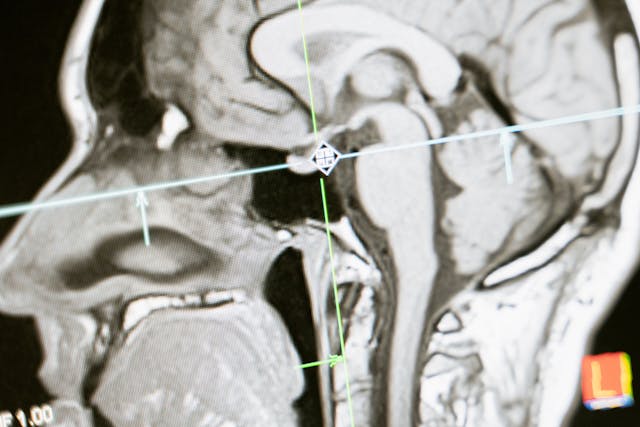Understanding the Side Effects of TMS Therapy


Introduction
Transcranial Magnetic Stimulation (TMS) therapy has emerged as a beacon of hope for individuals seeking non-medication treatments for depression and other mental health conditions. While its efficacy is well-documented, understanding potential side effects is crucial for those considering this innovative therapy.
Common Side Effects of TMS Therapy
TMS is generally well-tolerated, but some individuals may experience mild side effects, including:
- Scalp Discomfort: A slight tingling or discomfort at the treatment site during sessions.
- Headaches: Typically mild and often resolve shortly after treatment.
- Facial Muscle Twitching: Minor muscle contractions near the treatment area.
- Lightheadedness: Occasional dizziness during or immediately after sessions.
These side effects are usually transient and diminish as treatment progresses.
Rare but Serious Side Effects
Though uncommon, it’s important to be aware of potential serious side effects:
- Seizures: A rare occurrence, with a risk comparable to that of standard antidepressant medications.
- Hearing Issues: Due to the clicking sound during treatment, ear protection can be provided to prevent discomfort.
At MEAH, we conduct thorough screenings to minimize these risks and ensure patient safety.
Long-Term Side Effects & Post-Treatment Considerations
Current research indicates that TMS does not have lasting adverse effects. Post-treatment, patients typically resume daily activities without interruption. It’s essential to maintain open communication with your provider to address any concerns during the treatment course.
Integrating TMS with Holistic Mental Health Approaches
At MEAH, we believe in a comprehensive approach to mental health:
- Nutritional Psychiatry: Guidance on diet to support brain health.
- Lifestyle Modifications: Incorporating exercise and mindfulness practices to enhance treatment outcomes.
Combining TMS with these strategies offers a well-rounded path to wellness.
Insurance Coverage & Cost Transparency
Understanding the financial aspects of TMS is vital:
- Insurance Acceptance: MEAH accepts various insurance plans and assists in verifying coverage.
- Transparent Billing: We provide clear information on costs, ensuring no unexpected expenses.
Our team is dedicated to making the billing process straightforward and stress-free.
Emotional Journey During TMS Treatment
Embarking on TMS therapy can evoke various emotions:
- Initial Uncertainty: It’s normal to feel apprehensive at the start.
- Gradual Improvement: Many patients notice mood enhancements over time.
- Support Systems: Engaging with support groups or therapists can be beneficial during this period.
Recognizing and addressing these emotions is a vital part of the healing journey.
TMS for High-Functioning Individuals Facing Burnout
Professionals and caregivers experiencing burnout may find TMS beneficial:
- Stress Reduction: Alleviating symptoms of chronic stress and fatigue.
- Enhanced Focus: Improving concentration and cognitive function.
TMS offers a non-invasive option to restore balance in demanding lifestyles.
Telehealth & TMS: A Synergistic Approach
MEAH integrates telehealth services to complement TMS therapy:
- Convenient Consultations: Initial assessments and follow-ups can be conducted online.
- Continuous Support: Ensuring consistent care, regardless of location.
This hybrid model caters to the needs of busy professionals and remote patients.
Conclusion
TMS therapy presents a promising avenue for those seeking alternatives to traditional treatments. By understanding potential side effects and integrating holistic practices, patients can make informed decisions on their path to mental wellness.
If you’re considering TMS therapy, consult with our Board Certified psychiatrists at MEAH to explore a personalized treatment plan tailored to your unique needs.
Common Questions About TMS Therapy
1. Is TMS therapy safe?
Yes. TMS is FDA-approved and considered safe for most people, with mild and temporary side effects.
2. What are the most common side effects of TMS therapy?
Common side effects include scalp discomfort, mild headaches, lightheadedness, and facial muscle twitching during treatment.
3. Are there any long-term side effects of TMS?
Long-term side effects are extremely rare. Most patients experience no lasting issues after completing a course of TMS therapy.
4. Can TMS cause seizures?
Seizures are very rare—occurring in less than 0.1% of patients—and MEAH screens carefully to reduce this risk.
5. How soon do side effects appear, and how long do they last?
Side effects typically occur during or shortly after a session and usually fade within a few hours.
6. What should I do if I experience discomfort during treatment?
Let your provider know right away. Adjustments can be made to improve your comfort during sessions.
7. Does TMS therapy affect memory or cognitive function?
No, TMS does not negatively impact memory or cognitive abilities—in fact, some patients report improved focus and clarity.
8. Can I continue my daily routine during TMS treatment?
Yes. TMS is non-invasive and requires no downtime. Most people return to normal activities immediately after sessions.
9. Why choose MEAH for TMS therapy?
At MEAH, you’ll work with licensed psychiatrists and receive integrative care—including therapy, nutrition, and support—all in one place with easy scheduling and insurance options.

